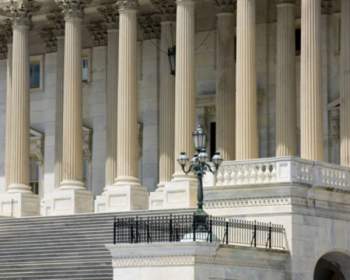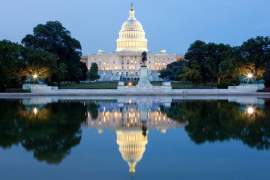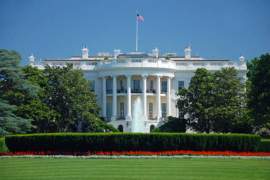
What was the Constitutional Convention?

Popular In Constitution
Purpose Of Lifetime Appointment And Pros And Cons Enumerated Powers Bicameral Legislature Background Article 3 Of The Constitution We The People 1st Amendment Who Wrote The Constitution Judicial Review Equal Protection Clause 5th Amendment 10th Amendment Three Fifths Compromise
Even prior to the Constitutional Convention of 1787, due to the chaos that ensued as a result of the flawed gubernatorial model established in Articles of Confederation, a complete adjustment of the national legislative schematic was already set in motion by not only Federalists Alexander Hamilton and James Madison, but also by figureheads such Benjamin Franklin and George Washington. In 1785, a conference was held in Mt. Vernon, Virginia, which was initially held in order to determine a course of action for the circumvention of the Potomac River.
Due to the Articles of Confederation’s vague criterion concerning interstate legislation, which ultimately disallowed the establishment of determining any sort of state borders in regards to the Potomac River - it spanned across multiple states such as Maryland and Virginia. As a result, the delegates at the conference proposed a nationwide convention in Philadelphia with the hopes of completely reformatting the existing governmental schematic - this was known as the Constitutional Convention.
The Constitutional Convention began at Independence Hall in Philadelphia on May 5th, 1787, and ended upon the completion of the final draft of the Constitution on September 17th, 1787. The Constitutional Convention was comprised of 55 delegates from 12 of the 13 states of the Union. Rhode Island, protesting the proposed ideals set forth in the Constitution, refused to send any delegates.
The Constitutional Convention was presided over by George Washington, a delegate from Virginia, and the future first President of the United States. The actual content of the Constitution is considered to be a conglomeration of ideas contributed by various politicos of that time, including Thomas Jefferson, James Madison, Thomas Paine, and John Adams.
Despite an initial desire to simply modify the precepts set forth in the Articles of Confederation, delegates participating in the Constitutional Convention found the existing gubernatorial and legislative systems unworkable, and as a result, created an entirely new document, which would become the Constitution of the United States. Rhode Island’s vehement opposition of the abolition of the Articles of Confederation prompted their refusal to send delegates to the Constitutional Convention.
The legislative methodology set forth in the Articles of Confederation maintained that any amendment of legislation, which was precisely the purpose of the Constitutional Convention, could not take place without the unanimous approval of each of the 13 states of the Union. Yet, the refusal to participate on the part of Rhode Island’s State Legislature was perceived to be laden with irony by the Federalists. The Federalists maintained that a single state’s ability to sway a decision on a national scale was inherently paradoxical.
However, even without the participation of Rhode Island, the Constitutional Convention commenced. The remaining 12 states grew tired of perpetual legislative ambiguity and erratic trade policies. The Constitutional Convention would cover a host of issues, both legislative and commercial, such as the role of central government, state representation, taxes, tariffs, the establishment of borders, and slavery.
NEXT: What was The Federalist Society?





















